Dr. Henry Giroux
Introduction
At a time when the public good is under attack and there seems to be a growing apathy toward the social contract or any other civic-minded investment in public values and the larger common good, education has to be seen as more than a credential or a pathway to a job, and pedagogy as more than teaching to the test. Against pedagogies of repression such as high-stakes testing, which largely serve as neoliberal forms of discipline to promote conformity and limit the imagination, critical pedagogy must be viewed as crucial to understanding and overcoming the current crises of agency, politics, and historical memory faced by many young people today. One of the challenges facing the current generation of educators and students is the need to reclaim the role that education has historically played in developing critical literacies and civic capacities. Education must mobilize students to be critically engaged agents, attentive to important social issues and alert to the responsibility of deepening and expanding the meaning and practices of a vibrant democracy.
At the heart of such a challenge is the question of what education should accomplish in a democracy. What work do educators have to do to create the economic, political, and ethical conditions necessary to endow young people with the capacities to think, question, and doubt, to imagine the unimaginable, and to defend education as essential for inspiring and energizing the citizens necessary for a robust democracy? In a world that has largely abandoned egalitarian and democratic impulses, what will it take to educate young people to challenge authority, resist the notion that education is only training, and redefine public and higher education as democratic public spheres?
What role might education and critical pedagogy have in a society in which the social has been individualized, emotional life has been collapsed into the therapeutic, and education has been relegated to either a private affair or a kind of algorithmic mode of regulation in which everything is reduced to a desired measurable economic outcome? Feedback loops and testing regimes now replace politics, and the concept of progress is defined through a narrow culture of metrics, measurement, and efficiency.1 In a culture drowning in a new love affair with empiricism and data, that which is not measurable withers. Lost here are the registers of compassion, care for others, the radical imagination, a democratic vision, and a passion for justice. In its place emerges what Goya, in one of his etchings, termed: “The Sleep of Reason Produces Monsters.” Goya’s title is richly suggestive, particularly about the role of education and pedagogy in compelling students to recognize, as my colleague David Clark points out, “that an inattentiveness to the never-ending task of critique breeds horrors: the failures of conscience, the wars against thought, and the flirtations with irrationality that lie at the heart of the triumph of every-day aggression, the withering of political life, and the withdrawal into private obsessions.”2
Given the multiple crises that haunt the current historical conjuncture, educators need a new language for addressing the changing contexts and issues facing a world in which an unprecedented convergence of resources—financial, cultural, political, economic, scientific, military, and technological—is increasingly used to concentrate powerful and diverse forms of control and domination. Such a language must be political without being dogmatic, and needs to recognize that pedagogy is always political, because it is connected to the struggle over agency. In this instance, making the pedagogical more political means being vigilant about those very “moments in which identities are being produced and groups are being constituted, or objects are being created.”3
The testing regimes now promoted by the anti-reformers such as Bill Gates, the Walton family, and others from the “billionaires’ club” function as dis-imagination regimes, undercutting the autonomy of teachers, unions, and the intellectual and political capacities of students to be informed and critically engaged citizens. The educational establishment’s obsession with testing and teaching to the test is part of a pedagogy of repression that attempts to camouflage the role that education plays in distorting history, silencing the voices of marginalized groups, and undercutting the relationship between learning and social change. Too many teachers suffer under regimes of testing, which trap them in a labor process that not only produces political and ethical servility, transforming them into deskilled technicians, but also obscures the role that schools might play in creating the formative cultures that make a democracy possible, and in addressing pedagogy as a moral and political practice.
Testing regimes make power invisible by defining education as a form of training, and pedagogy as strictly a method designed to teach pre-defined, standardized skills. Purposely missing from this discourse is education’s role in shaping identities, desires, values, and notions of agency. Lost from the prison house of testing regimes is any consideration for educators to be attentive to those practices in which critical modes of agency and particular identities are being denied. For example, the Tucson Unified School District Board not only eliminated its famed Mexican American Studies Program, but also banned Chicano and Native American books it deemed dangerous. The ban also included Shakespeare’s play The Tempestand Pedagogy of the Oppressed by the famed Brazilian educator Paulo Freire. This act of censorship provides a particularly disturbing case of the war being waged in the United States against not only young people marginalized by race and class, but also against the very spaces and pedagogical practices that make critical thinking possible.
Testing regimes have nothing to say about the oppressive ideologies that function as part of a hidden curriculum that produces and legitimates tracking, social sorting, segregated schools, the defunding of public schools, and the power exercised over the production and control of knowledge. For instance, the testing movement seriously undermines the critical capacities of students, and gives them no tools to recognize how right-wing religious and political fundamentalists are shaping textbooks. What tools does teaching to the test offer students that might enable them to recognize that in a recently published McGraw-Hill world geography textbook, a speech bubble in a section on Patterns of Immigration pointed to the continent of Africa and read: “The Atlantic Slave Trade between the 1500s and 1800s brought millions of workers from Africa to the southern United States to work on agricultural plantations”?4 Calling slaves “workers,” and the forced migration of Africans to the United States an act of “immigration,” is something that could have been written by the Ku Klux Klan or other white supremacist groups. And it is precisely this kind of historical and political erasure that is central to the testing regimes pushed by dominant financial and class interests.
Such actions are not innocent or free from the working of dominant power and ideology. The damaging ideology underlying the testing mania and its pedagogical forms of oppression suggests the need for faculty to develop forms of critical pedagogy that not only challenge testing regimes but also inspire and energize students. That is, they should be able to challenge a growing number of anti-democratic practices and policies while also resurrecting a radical democratic project that provides the basis for imagining a life beyond a social order immersed in inequality, environmental degradation, and the elevation of war and militarization to national ideals. Under such circumstances, education becomes more than an obsession with accountability schemes, an audit culture, market values, and an unreflective immersion in the crude empiricism of a data-obsessed market-driven society. It becomes part of a formative culture in which thoughtlessness prevails, providing the foundation for what Hannah Arendt called “the curse of totalitarianism.”
At a time of increased repression, it is all the more crucial for educators to reject the notion that public and higher education are simply sites for training students for the workforce, and that the culture of education is synonymous with the culture of business. At issue here is the need for educators to recognize the power of education in creating the formative cultures necessary to challenge the various threats being mobilized against the ideas of justice and democracy, while also fighting for those public spheres, ideals, values, and policies that offer alternative modes of identity, thinking, social relations, and politics.
In both conservative and progressive discourses, pedagogy is often treated simply as a set of strategies and skills used to teach and test for pre-specified subject matter. In this context, pedagogy becomes synonymous with teaching as a technique or the practice of a craft-like skill. Any viable notion of critical pedagogy must grasp the limitations of this definition and its endless slavish imitations, even when they are claimed as part of a radical discourse or project. In opposition to the instrumental reduction of pedagogy to a method—which has no language for relating the self to public life, social responsibility, or the demands of citizenship—critical pedagogy illuminates the relationships among knowledge, authority, and power.5
Central to any viable notion of what makes pedagogy critical is, in part, the recognition that pedagogy is always a deliberate attempt on the part of educators to influence how and what knowledge and subjectivities are produced within particular sets of social relations. This approach to critical pedagogy does not reduce educational practice to the mastery of methodologies. It stresses instead the importance of understanding what actually happens in classrooms and other educational settings by raising questions: What is the relationship between learning and social change? What knowledge is of most worth? What does it mean to know something, and in what direction should one desire? Pedagogy is always about power, because it cannot be separated from how subjectivities are formed or desires mobilized, how some experiences are legitimated and others are not, or how some knowledge is considered acceptable while other forms are excluded from the curriculum.
Pedagogy is a moral and political practice because it offers particular versions and visions of civic life, community, the future, and how we might construct representations of ourselves, others, and our physical and social environment. But it does more; it also, as Roger Simon has written, “represents a version of our own dreams for ourselves, our children, and our communities. But such dreams are never neutral; they are always someone’s dreams and to the degree that they are implicated in organizing the future for others they always have a moral and political dimension.”6
It is in this respect that any discussion of pedagogy must begin with a discussion of educational practice as a particular way in which a sense of identity, place, worth, and above all value is informed by practices that organize knowledge and meaning.7 Central to my argument is the assumption that politics is not only about the exercise of economic and political power, but also, as Cornelius Castoriadis points out, “has to do with political judgements and value choices,” indicating that questions of civic education and critical pedagogy—learning how to become a skilled citizen—are central to the struggle over political agency and democracy.8
In this instance, critical pedagogy emphasizes critical reflection, bridging the gap between learning and everyday life, understanding the connection between power and difficult knowledge, and extending democratic rights and identities by using the resources of history and theory. However, many educators and social theorists refuse to recognize that education does not only take place in schools, but also through what can be called the educative nature of the culture. That is, there are a range of cultural institutions extending from the mainstream media to new digital screen cultures that engage in what I have called forms of public pedagogy, which are central to the tasks of either expanding and enabling political and civic agency, or of shutting them down. At stake here is the crucial recognition that pedagogy is central to politics itself, because it is about changing the way people see things, recognizing that politics is educative and, as the late Pierre Bourdieu reminded us, “the most important forms of domination are not only economic but also intellectual and pedagogical, and lie on the side of belief and persuasion.”9
Just as I would argue that pedagogy has to be made meaningful in order to be made critical and transformative, I think it is fair to argue that there is no politics without a pedagogy of identification; that is, people must invest something of themselves in how they are addressed, or recognize that any mode of education, argument, idea, or pedagogy has to speak to their condition and provide a moment of recognition. Lacking this understanding, pedagogy all too easily becomes a form of symbolic and intellectual violence, one that assaults rather than educates. Once again, one can see this in forms of high-stakes testing and empirically driven teaching approaches that dull the critical impulse and produce what might be called dead zones of the imagination. We also see such violence in schools whose chief function is repression. Such schools often employ modes of instruction that are punitive and mean-spirited, largely driven by regimes of memorization and conformity. Pedagogies of repression are largely disciplinary and have little regard for analyzing contexts and history, making knowledge meaningful, or expanding upon what it means for students to be critically engaged agents.
Expanding critical pedagogy as a mode of public pedagogy suggests being attentive to and addressing modes of knowledge and social practices in a variety of sites that not only encourage critical thinking, thoughtfulness, and meaningful dialogue, but also offer opportunities to mobilize instances of moral outrage, social responsibility, and collective action. Such mobilization opposes glaring material inequities and the growing cynical belief that today’s culture of investment and finance makes it impossible to address social problems facing the United States, Canada, Latin America, and the larger world. Most importantly, such work points to the link between civic education, critical pedagogy, and modes of oppositional political agency that are pivotal to creating a politics that promotes democratic values, relations, autonomy, and social change.
Rather than viewing teaching as a technical practice, pedagogy in the broadest critical sense is premised on the assumption that learning is not about processing received knowledge, but actually transforming it, as part of a more expansive struggle for individual rights and social justice. The fundamental challenge facing educators in the current age of neoliberalism, militarism, and religious fundamentalism is to provide the conditions for students to address how knowledge is related to the power of both self-definition and social agency. In part, this suggests providing students with the skills, ideas, values, and authority necessary for them to nourish a substantive democracy, recognize anti-democratic forms of power, and to fight deeply rooted injustices in a society and world founded on systemic economic, racial, and gendered inequalities. I want to take up these issues by addressing a number of related pedagogical concerns, including the notion of teachers as public intellectuals, pedagogy and the project of insurrectional democracy, pedagogy and the politics of responsibility, and finally, pedagogy as a form of resistance and educated hope.
The Responsibility of Teachers as Engaged Intellectuals
In the age of irresponsible privatization, unchecked individualism, celebrity culture, unfettered consumerism, and a massive flight from moral responsibility, it has become more and more difficult to acknowledge that educators and other cultural workers bear an enormous responsibility in opposing the current threat to the planet and everyday life by reviving democratic political cultures. Lacking a self-consciously democratic political focus or project, teachers are often reduced either to technicians or functionaries, engaged in formalistic rituals, absorbed with bureaucratic demands, and unconcerned either with disturbing and urgent social problems that confront the larger society or the consequences of one’s pedagogical practices and research. In opposition to this model, with its claims to and conceit of political neutrality, I argue that teachers and academics should combine the mutually interdependent roles of critical educator and active citizen. This requires finding ways to connect the practice of classroom teaching with issues that bear on their lives and the larger society, and to provide the conditions for students to view themselves as critical agents capable of making those who exercise authority and power answerable for their actions. The role of a critical education is not to train students solely for jobs, but to educate them to question critically the institutions, policies, and values that shape their lives, their relationships to others, and their myriad of connections to the larger world.
Stuart Hall, one of the founders of cultural studies, was on target when he insisted that educators as public intellectuals have a responsibility to provide students with “critical knowledge that has to be ahead of traditional knowledge: it has to be better than anything that traditional knowledge can produce, because only serious ideas are going to stand up.”10 At the same time, he insisted on the need for educators to “actually engage, contest, and learn from the best that is locked up in other traditions,” especially those attached to traditional academic paradigms.11 It is also important to remember that education as a form of educated hope is not simply about fostering critical consciousness, but also about teaching students, as Zygmunt Bauman has put it, to “take responsibility for one’s responsibilities,” be they personal, political, or global. Students should be made aware of the ideological and structural forces that promote needless human suffering, while also recognizing that it takes more than awareness to resolve them.
What role might educators in both public and higher education play as public intellectuals in light of the poisonous assaults waged on public schools by the forces of neoliberalism and other fundamentalisms? In the most immediate sense, they can raise their collective voices against the influence of corporations that are flooding societies with a culture of violence, fear, anti-intellectualism, commercialism, and privatization. They can show how this culture of commodified cruelty and violence is only one part of a broader and all-embracing militarized culture of war, the arms industry, and a social Darwinian survival-of-the-fittest ethic that increasingly disconnects schools from public values, the common good, and democracy itself. They can bring all of their intellectual and collective resources together to critique and dismantle the imposition of high-stakes testing and other commercially driven modes of accountability on schools.
They can speak out against modes of governance that have reduced teachers and faculty to the status of part-time Walmart employees, and they can struggle collectively to take back public and higher education from a new class of hedge fund managers, corporate elites, and the rich, who want to privatize education and strip it of its civic values and its role as a democratic public good. This suggests that educators must join with parents, young people, social movements, intellectuals, and other cultural workers to resist the ongoing corporatization of public and higher education. It also means developing a comprehensive understanding of the interconnections between the ideology of financial elites, the testing industries, the criminal justice system, and other apparatuses whose purpose is to reduce teachers to the status of clerks, technicians, or “entrepreneurs,” a subaltern class of deskilled workers with little power, few benefits, and excessive teaching loads. As Noam Chomsky has observed, this neoliberal mode of austerity and precarity is part of a business model “designed to reduce labor costs and to increase labor servility,” while at the same time making clear that “what matters is the bottom line.”12
In addition, educators, parents, workers, and others can work together to develop a broader, comprehensive vision of education and schooling that is capable of waging a war against those who would deny both their critical functions—and this applies to all forms of dogmatism and political purity, across the ideological spectrum. As my friend, the late Paulo Freire, once argued, educators have a responsibility to not only develop a critical consciousness in students, but to provide the conditions for students to be engaged individuals and social agents. As Stanley Aronowitz has argued, such a project is not a call to shape students in the manner of Pygmalion, but to encourage human agency, not mold it. Since human life is conditioned rather than determined, educators cannot escape the ethical responsibility of addressing education as an act of intervention whose purpose is to provide the conditions for students to become the subjects and makers of history. This requires dismissing a repressive system of education designed to turn students into simply passive, disconnected objects, or mere consumers and not producers of knowledge, values, and ideas.13
This calls for a pedagogy in which educators would be afraid neither of controversy nor of the willingness to make connections that are otherwise hidden. Nor would they be afraid of making clear the connection between private troubles and broader social problems. One of the most important tasks for educators engaged in critical pedagogy is to teach students how to translate private issues into public considerations. One measure of the demise of vibrant democracy and the corresponding impoverishment of political life can be found in the increasing inability of a society to make private issues public, to translate individual problems into larger social issues. As the public collapses into the personal, the personal becomes “the only politics there is, the only politics with a tangible referent or emotional valence.”14 This is a central feature of neoliberalism as an educative tool, and can be termed the individualization of the social. Under such circumstances, the language of the social is either devalued or ignored, as public life is often reduced to a form of pathology or deficit (as in public schools, transportation, and welfare) and all dreams of the future are modeled increasingly around the narcissistic, privatized, and self-indulgent needs of consumer culture and the dictates of the allegedly free market. Similarly, all problems, whether they are structural or caused by larger social forces, are now attributed to individual failings, matters of character, or individual ignorance. In this case, poverty is reduced to a matter of individual lifestyle, personal responsibility, bad choices, or flawed character.
Pedagogy as a Practice of Freedom
In opposition to dominant views of instrumental and test-driven modes of education and pedagogy, I want to argue for a notion of pedagogy as a practice of freedom—rooted in a broader project of a resurgent and insurrectional democracy—one that relentlessly questions the kinds of labor practices and forms of production enacted in public and higher education. While such a pedagogy does not offer guarantees, it does recognize that its own position is grounded in particular modes of authority, values, and ethical principles that must be constantly debated for the ways in which they both open and close democratic relations, values, and identities. Needless to say, such a project should be principled, relational, and contextual, as well as self-reflective and theoretically rigorous. By relational, I mean that the current crisis of schooling must be understood in relation to the broader assault being waged against all aspects of democratic public life. At the same time, any critical comprehension of those wider forces shaping public and higher education must also be supplemented by an attention to the historical and conditional nature of pedagogy itself. This suggests that pedagogy can never be treated as a fixed set of principles and practices that can be applied indiscriminately across a variety of pedagogical sites. On the contrary, it must always be attentive to the specificity of different contexts and the different conditions, formations, and problems that arise in various sites in which education takes place. Such a project suggests recasting pedagogy as a practice that is indeterminate, open to constant revision, and constantly in dialogue with its own assumptions.
The notion of a neutral, objective education is an oxymoron. Education and pedagogy do not exist outside of relations of power, values, and politics. Ethics on the pedagogical front demand an openness to the other, a willingness to engage a “politics of possibility” through a continual critical engagement with texts, images, events, and other registers of meaning as they are transformed into pedagogical practices, both within and outside the classroom.15Pedagogy is never innocent, and if it is to be understood and problematized as a form of academic labor, educators have the opportunity not only to critically question and register their own subjective involvement in how and what they teach, but also to resist all calls to depoliticize pedagogy through appeals to either scientific objectivity or ideological dogmatism. This suggests the need for educators to rethink the cultural and ideological baggage they bring to each educational encounter. It also highlights the need to make educators ethically and politically accountable and self-reflective for the stories they produce, the claims they make upon public memory, and the images of the future they deem legitimate. Hence, crucial to any viable notion of critical pedagogy is the necessity for critical educators to be attentive to the ethical dimensions of their own practice.
The Promise of a Democracy to Come
As a practice of freedom, critical pedagogy needs to be grounded in a project that not only problematizes its own location, mechanisms of transmission, and effects, but also functions as part of a wider project to help students think critically about how existing social, political, and economic arrangements might better address the promise of a democracy to come. Understood as a form of educated hope, pedagogy in this sense is not an antidote to politics, a nostalgic yearning for a better time, or for some “inconceivably alternative future.” Instead, it is an “attempt to find a bridge between the present and future in those forces within the present which are potentially able to transform it.”16
What has become clear in this current climate of casino capitalism is that the corporatization of education cancels out the teaching of democratic values, impulses, and practices of a civil society by either devaluing or absorbing them within the logic of the market. Educators need a critical language to address these challenges to public and higher education. But they also need to join with other groups outside of the spheres of public and higher education, in order to create broad national and international social movements that share a willingness to defend education as a civic value and public good and to engage in a broader struggle to deepen the imperatives of democratic public life. The quality of educational reform can, in part, be gauged by the caliber of public discourse concerning the role that education plays in furthering, not the market driven agenda of corporate interests, but the imperatives of critical agency, social justice, and an operational democracy.
If we define pedagogy as a moral and political exercise, then education can highlight the performative character of schooling and civic pedagogy as a practice that moves beyond simple matters of critique and understanding. Pedagogy is not simply about competency or teaching young people the great books, established knowledge, predefined skills, and values, it is also about the possibility of interpretation as an act of intervention in the world. Such a pedagogy should challenge common sense and take on the task as the poet Robert Hass once put it, “to refresh the idea of justice going dead in us all the time.”17 Within this perspective, critical pedagogy foregrounds the diverse conditions under which authority, knowledge, values, and subject positions are produced and interact within unequal relations of power. Pedagogy in this view also stresses the labor conditions necessary for teacher autonomy, cooperation, decent working conditions, and the relations of power necessary to give teachers and students the capacity to restage power in productive ways that point to self-development, self-determination, and social agency.
Making Pedagogy Critical and Transformative
Any analysis of critical pedagogy needs to address the importance that affect, meaning, and emotion play in the formation of individual identity and social agency. Any viable approach to critical pedagogy suggests taking seriously those maps of meaning, affective investments, and sedimented desires that enable students to connect their own lives and everyday experiences to what they learn. Pedagogy in this sense becomes more than a mere transfer of received knowledge, a disciplinary system of repression, an inscription of a unified and static identity, or a rigid methodology; it presupposes that students are moved by their passions and motivated, in part, by the identifications, range of experiences, and commitments they bring to the learning process. In part, this suggests connecting what is taught in classrooms to the cultural capital and worlds that young people inhabit.
For instance, schools often have little to say about the new media, digital culture, and social media that dominate the lives of young people. Hence, questions concerning both the emancipatory and oppressive aspects of these media are often ignored, and students find themselves bored in classrooms in which print culture and its older modes of transmission operate. Or they find themselves using new technologies with no understanding of how they might be understood as more than retrieval machines—that is, as technologies deeply connected to matters of power, ideology, and politics. The issue here is not a call for teachers to simply become familiar with the new digital technologies, however crucial, but to address how they are being used as a form of cultural politics and pedagogical practice to produce certain kinds of citizens, desires, values, and social relations. At stake here is the larger question of how these technologies enhance or shut down the meaning and deepening of democracy. Understanding the new media is a political issue and not merely a technological one. Sherry Turkle is right in arguing that the place of technology can only be addressed if one has a set of values from which to work. This is particularly important given the growth of the surveillance state in the United States and the growing retreat from privacy on the part of a generation that is now hooked on the corporate-controlled social media such as Twitter, Instagram, and Facebook.
The experiences that shape young people’s lives are often mediated modes of experiences in which some are viewed as more valued than others, especially around matters of race, sexuality, and class. Low-income white students and poor minorities are often defined through experiences that are viewed as deficits. In this instance, different styles of speech, clothing, and body language can be used as weapons to punish certain students. How else to explain the high rate of black students in the United States who are punished, suspended, and expelled from their schools because they violate dress codes or engage in what can be considered minor rule violations.
Experiences also tie many students to modes of behavior that are regressive, punishing, self-defeating, and in some cases violent. We see too many students dominated by the values of malls, shopping centers, and fashion meccas. They not only fill their worlds with commodities but have become working commodities. Clearly, such experiences must be critically engaged and understood within a range of broader forces that subject students to a narrow range of values, identities, and social relations. Such experiences should be both questioned and unlearned, where possible. This suggests a pedagogical approach in which such experiences are interrogated through what Roger Simon and Deborah Britzman call troubling or difficult knowledge. For instance, it is sometimes difficult for students to take a critical look at Disney culture not just as a form of entertainment, but also as an expression of corporate power that produces a range of demeaning stereotypes for young people, while it endlessly carpet bombs them with commercial products. Crucial here is developing pedagogical practices that not only interrogate how knowledge, identifications, and subject positions are produced, unfolded, and remembered but also how such knowledges can be unlearned, particularly as they become complicit with existing relations of power.
Conclusion
At the dawn of the twenty-first century, the notion of the social and the public are not being erased as much as they are being reconstructed under circumstances in which public forums for serious debate, including public education, are being eroded. Reduced either to a crude instrumentalism, business culture, or defined as a purely private right rather than a public good, teaching and learning are removed from the discourse of democracy and civic culture. Pedagogies of repression wedded to diverse regimes of testing now shamelessly parade under the manner of a new reform movement. In actuality, they constitute not only a hijacking of public and higher education so as to serve the interests of the financial and corporate elite, they also constitute an attack on the best elements of the enlightenment and further undermine any viable notion of democratic socialism.
Under the influence of powerful financial interests, we have witnessed the takeover of public and increasingly higher education by a corporate logic and pedagogy that both numbs the mind and the soul, emphasizing repressive modes of learning that promote winning at all costs, learning how not to question authority, and undermining the hard work of becoming thoughtful, critical, and attentive to the power relations that shape everyday life and the larger world. As learning is privatized, treated as a form of entertainment, depoliticized, and reduced to teaching students how to be good consumers, any viable notions of the social, public values, citizenship, and democracy wither and die. I am not suggesting that we must defend an abstract and empty notion of the public sphere, but those public spheres capable of producing thoughtful citizens, critically engaged agents, and an ethically and socially responsible society.
The greatest threat to young people does not come from lowered standards, the absence of privatized choice schemes, or the lack of rigid testing measures. On the contrary, it comes from societies that refuse to view children as a social investment, consign millions of youth to poverty, reduce critical learning to massive mind-deadening testing programs, promote policies that eliminate the most crucial health and public services, and define masculinity through the degrading celebration of a gun culture, extreme sports, and the spectacles of violence that permeate corporate controlled media industries. Students are not at risk because of the absence of market incentives in the schools, they are at risk because education is being stripped of public funding, public values, handed over to corporate interests, and devalued as a public good. Students are at risk because schools have become dis-imagination machines killing any vestige of creativity, passion, and critical thinking that students might learn and exhibit as part of their schooling. Children and young adults are under siege in both public and higher education because far too many of these institutions have become breeding grounds for commercialism, segregation by class and race, social intolerance, sexism, homophobia, consumerism, surveillance, and the increased presence of the police, all of which are spurred on by the right-wing discourse of pundits, politicians, educators, and a supine mainstream media.
As a central element of a broad-based cultural politics, critical pedagogy, in its various forms, when linked to the ongoing project of democratization can provide opportunities for educators and other cultural workers to redefine and transform the connections among language, desire, meaning, everyday life, and material relations of power as part of a broader social movement to reclaim the promise and possibilities of a democratic public life. Critical pedagogy is dangerous to many educators and others because it provides the conditions for students to develop their intellectual capacities, hold power accountable, and embrace a sense of social responsibility.
One of the most serious challenges facing teachers, artists, journalists, writers, and other cultural workers is the task of developing a discourse of both critique and possibility. This means developing languages and pedagogical practices that connect reading the word with reading the world, and doing so in ways that enhance the capacities of young people as critical agents and engaged citizens. In taking up this project, educators and others should attempt to create the conditions that give students the opportunity to become autonomous actors who have the knowledge and courage to struggle in order to make desolation and cynicism unconvincing and hope practical. Educated hope is not a call to overlook the difficult conditions that shape both schools and the larger social order. On the contrary, it is the precondition for providing those languages and values that point the way to a more democratic and just world. As Judith Butler has argued, there is more hope in the world when we can question common sense assumptions and believe that what we know is directly related to our ability to help change the world around us, though it is far from the only condition necessary for such change.18 There is more hope in the world when educators and others take seriously John Dewey’s insistence that “a democracy needs to be reborn in each generation, and education is its midwife.”19 Today, Dewey’s once vaunted claim is more important than ever, and reminds us that democracy begins to fail and political life becomes impoverished in the absence of those vital public spheres such as public and higher education in which civic values, public scholarship, and social engagement allow for a more imaginative grasp of a future that takes seriously the demands of justice, equity, and civic courage. Democracy should be a way of thinking about education, one that thrives on connecting equity to excellence, learning to ethics, and agency to the imperatives of social responsibility and the public good.20 We may live in dark times, but the future is still open. The time has come to develop a pedagogical language in which civic values, social responsibility, and the institutions that support them become central to invigorating and fortifying a new era of civic imagination, a renewed sense of social agency, and an impassioned international social movement with a vision, organization, and set of strategies to challenge the anti-democratic forces engulfing the planet. My friend the late Howard Zinn got it right in his insistence that hope is the willingness “to hold out, even in times of pessimism, the possibility of surprise.”21 Or, to add to this eloquent plea, I would say, resistance is no longer an option, it is a necessity.
Notes
- ↩See for instance Evgeny Morozov, “The Rise of Data and the Death of Politics,”The Guardian, July 20, 2014.
- ↩Author’s correspondence with David Clark.
- ↩Gary Olson and Lynn Worsham, “Staging the Politics of Difference: Homi Bhabha’s Critical Literacy,”Journal of Advanced Composition 18 (1998): 361–91.
- ↩Yanan Wang, “Changes due for ‘revisionist’ textbook,”The Hamilton Spectator, October 6, 2015.
- ↩For examples of this tradition, see Maria Nikolakaki, ed.,Critical Pedagogy in the Dark Ages: Challenges and Possibilities (New York: Peter Lang, 2012); Henry A. Giroux,On Critical Pedagogy (New York: Continuum, 2011).
- ↩Roger Simon, “Empowerment as a Pedagogy of Possibility,”Language Arts64, no. 4 (1987): 372.
- ↩Henry A. Giroux,Education and the Crisis of Public Values, 2nd ed. (New York: Peter Lang, 2015).
- ↩Cornelius Castoriadis, “Institutions and Autonomy,” in Peter Osborne, ed.,A Critical Sense (New York: Routledge, 1996), 8.
- ↩Pierre Bourdieu and Gunter Grass, “The ‘Progressive’ Restoration: A Franco-German Dialogue,”New Left Review 14 (2002): 66.
- ↩Greig de Peuter, “Universities, Intellectuals and Multitudes: An Interview with Stuart Hall,” in Mark Cote, Richard J. F. Day, and Greig de Peuter, eds.,Utopian Pedagogy: Radical Experiments Against Neoliberal Globalization (Toronto: University of Toronto Press, 2007), 113–14.
- ↩Ibid., 117.
- ↩Noam Chomsky, “The Death of American Universities,”Reader Supported News, March 30, 2015, http://readersupportednews.org.
- ↩This idea is central to the work of Paulo Freire, especially hisPedagogy of the Oppressed andPedagogy of Freedom.
- ↩Jean Comaroff and John L. Comaroff, “Millennial Capitalism: First Thoughts on a Second Coming,”Public Culture 12, no. 2 (2000): 305–06.
- ↩For an informative discussion of the ethics and politics of deconstruction, see Thomas Keenan,Fables of Responsibility: Aberrations and Predicaments in Ethics and Politics (Stanford, CA: Stanford University Press, 1997), 2.
- ↩Terry Eagleton,The Idea of Culture (Malden, MA: Blackwell, 2000), 22.
- ↩Robert Hass, cited in Sarah Pollock, “Robert Hass,”Mother Jones (March/April 1992), 22.
- ↩Cited in Gary Olson and Lynn Worsham, “Changing the Subject: Judith Butler’s Politics of Radical Resignification,”Journal of Advanced Composition 20, no. 4 (200), 765.
- ↩John Dewey, cited in E. L. Hollander, “The Engaged University,”Academe 86, no. 4 (2000): 29–32.
- ↩Andrew Delbanco,College: What It Was, Is, and Should Be (Princeton, NJ: Princeton University Press, 2006).
- ↩Howard Zinn,A People’s History of the United States. (New York: Harper Perennial, 2003), 634.
Source:
Beyond Pedagogies of Repression

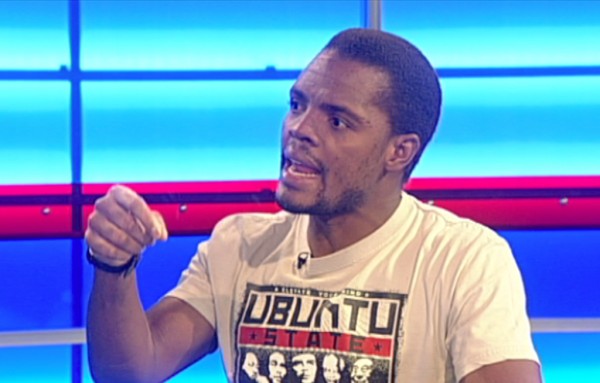
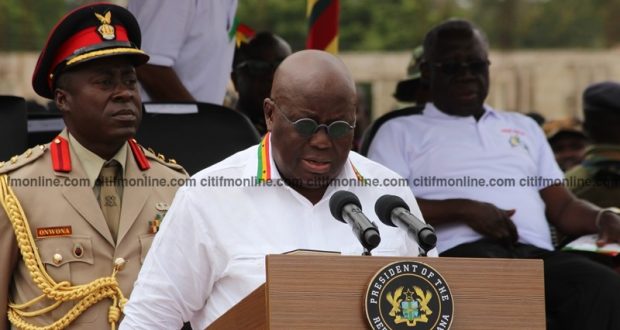
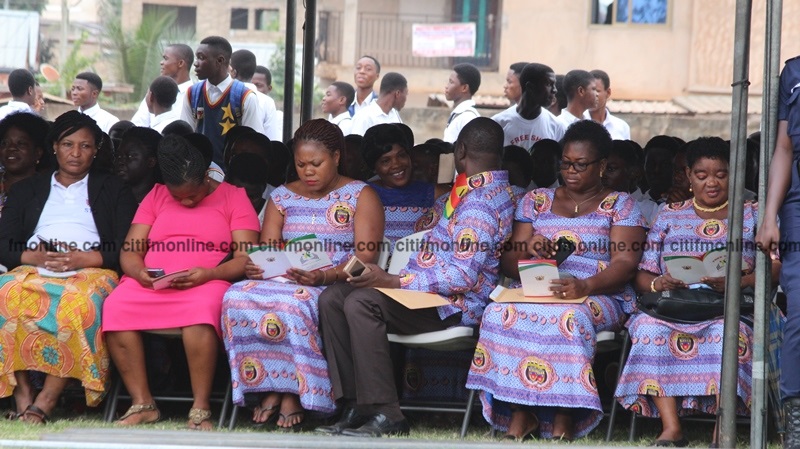
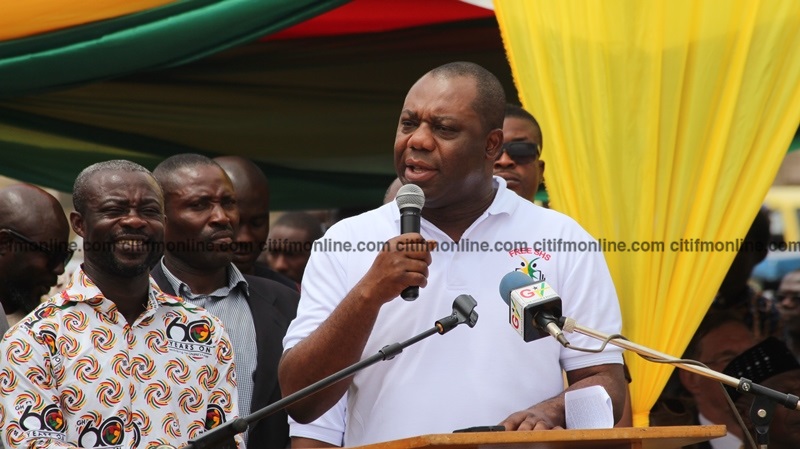
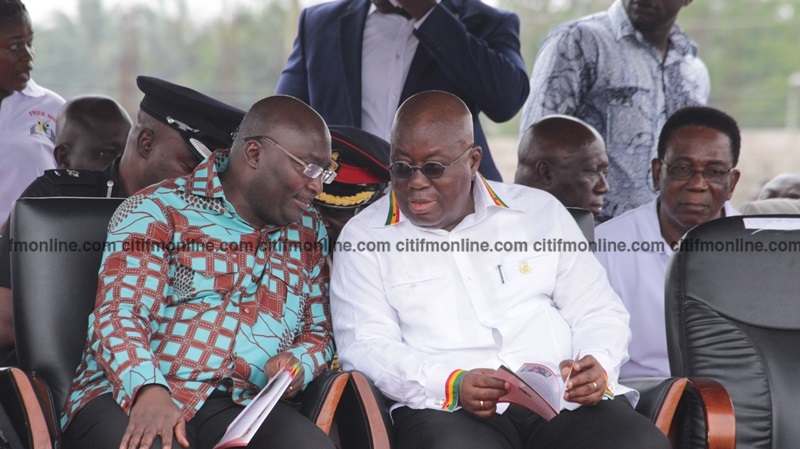
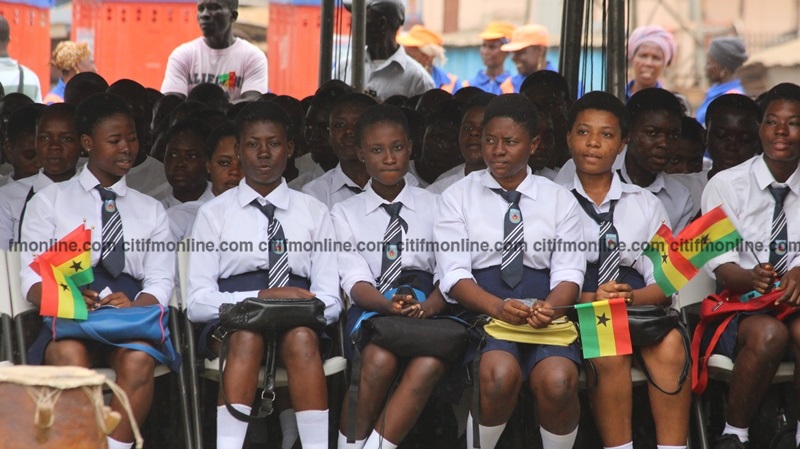
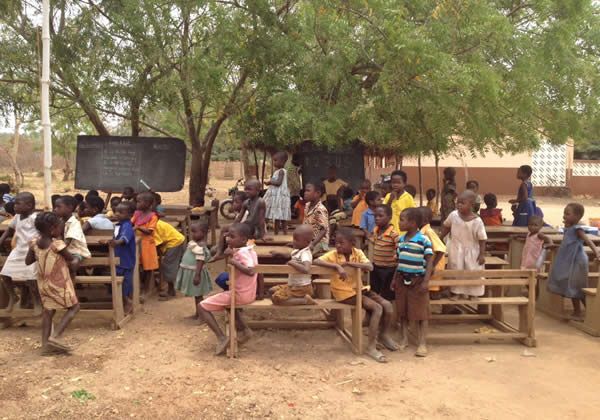
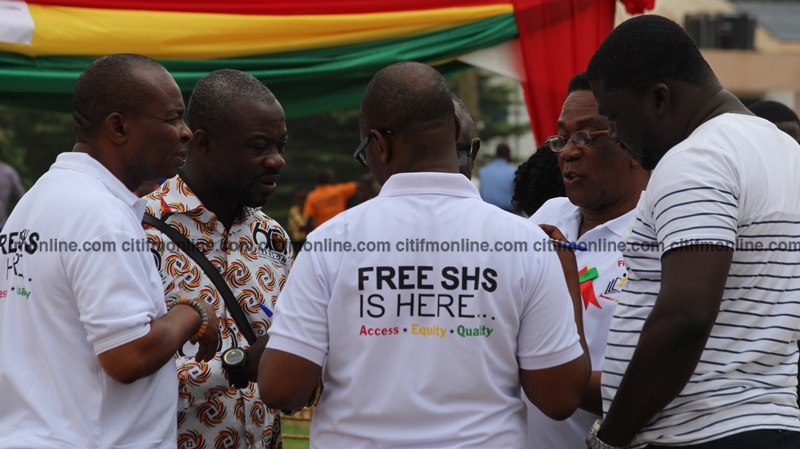

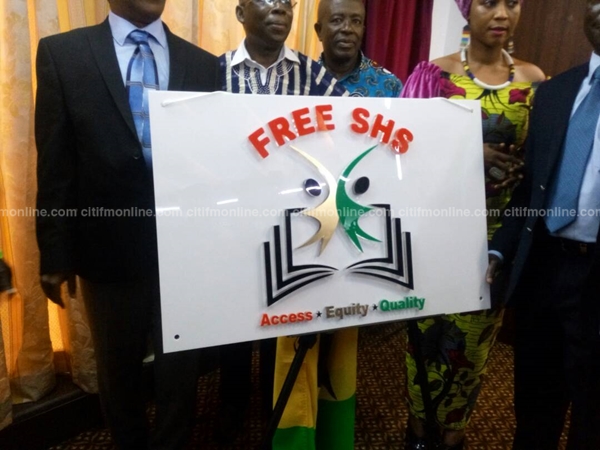
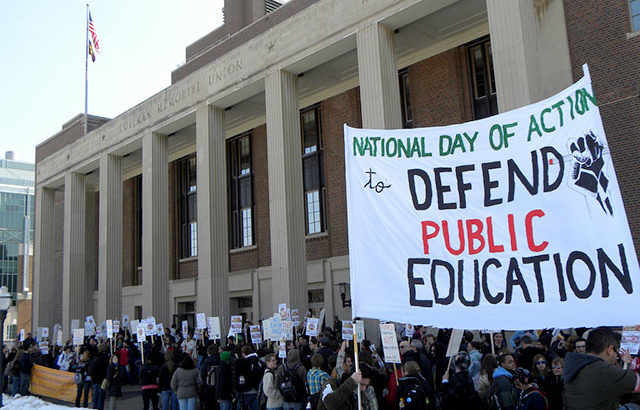

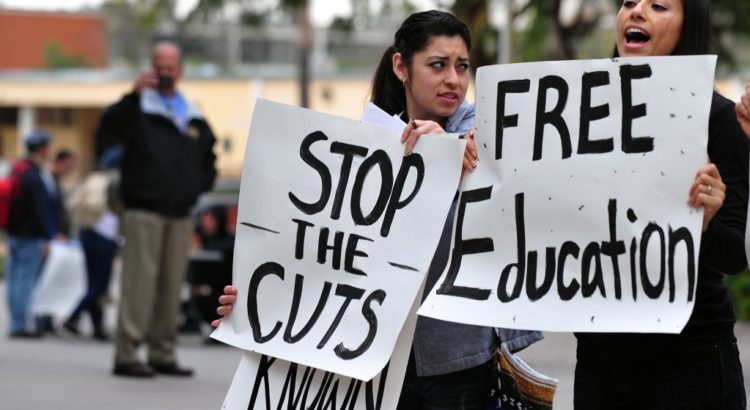
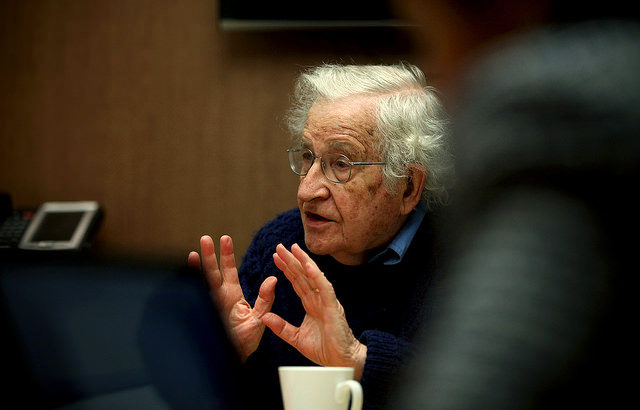





 Users Today : 9
Users Today : 9 Total Users : 35460466
Total Users : 35460466 Views Today : 16
Views Today : 16 Total views : 3419311
Total views : 3419311